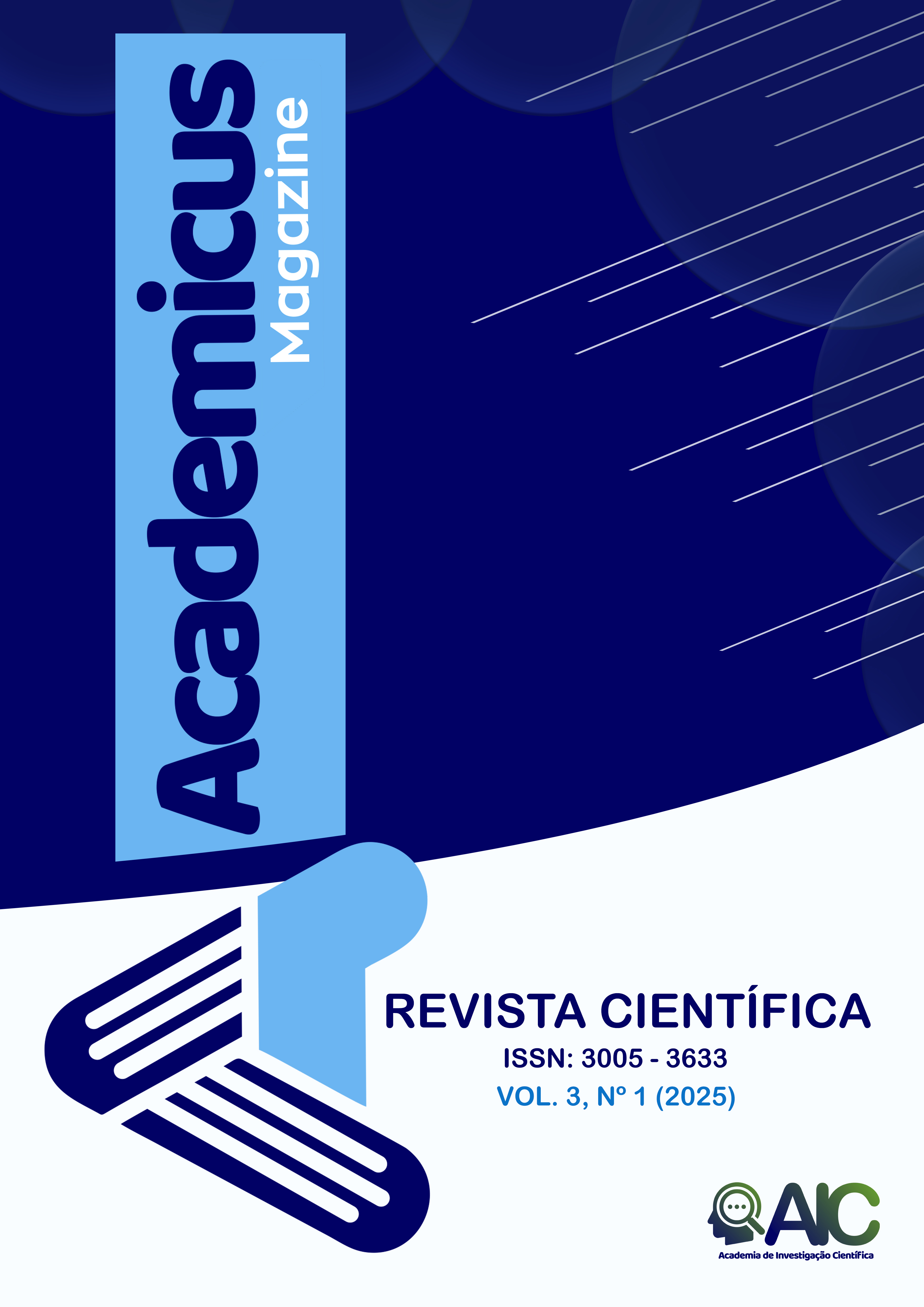Estudio de adaptación del Cuestionario de Personalidad de Zuckerman-Kuhlman y Aluja (ZKPQ) en Angola
DOI:
https://doi.org/10.4314/academicus.v3i1.3Palabras clave:
Personalidad, Psicometría, Culturas, Análisis factorialResumen
El presente estudio se realizó para evaluar las características psicométricas del cuestionario de personalidad Zuckerman-Kuhlman-Aluja, traducido del inglés para una muestra angoleña. El análisis factorial de los ítems, obtenido en una muestra de 981 sujetos (501 sujetos varones y 480 sujetos mujeres), mostró que existía una correspondencia relativa entre los componentes factoriales y las cinco dimensiones hipotéticas determinadas a priori. La réplica angoleña de este cuestionario arrojó coeficientes Alfa de Cronbach insatisfactorios. Las consistencias internas de los cinco factores, medidas a través de Alfa, variaron entre 0,42 (Búsqueda de Sensaciones) y 0,78 (Neuroticismo). El alfa promedio fue de 0,56, con un rango de 40 (ImpSS) a 0,78 (N-Anx). Como ocurrió en algunas culturas, particularmente Senegal y Togo, la confiabilidad en este estudio también fue menor. El porcentaje promedio de varianza explicada con base en el R2 ajustado fue - 0,001, - 0,002 y - 0,02 para edad, sexo y culturas, medidos a través del dominio de las lenguas africanas. Las correlaciones entre las dimensiones produjeron una validez satisfactoria. El bajo poder de este estudio puede explicar por qué los cinco factores derivados explicaron sólo el 20,2% de la varianza en las puntuaciones. Los resultados sugieren que esta versión, aunque relativamente fiable, puede servir de base para la construcción de un cuestionario más ajustado a la realidad cultural angoleña, o si lo preferimos, africana.
Citas
Aaron, Panofsky; Dasgupta, Kushan (2020). “How White nationalists mobilize genetics: From Genetic Ancestry and Human Biodiversity to counter science and Meta-politics”. American Journal of Biological Anthropology. 175(2): 387–398.
Alade, O. M., Aletan, S. and Sokenu, B. S. 2020. Assessing the differential item functioning of 2018. WASSCE mathematics achievement tests in Lagos State, Nigeria. AJB-SDR 2.2:8-20.
Allemand, M.,Zimprinch,D., Hendrix J. (2008). Age Differences in Five Personality Domains Across the Life Spa. Developmental Psychology 44 (3):758-70. https://doi.org/10.1037/0012-1649.44
Allport, G. W. (1966).Personalidade padrões e desenvolvimento. São Paulo: Herder. Editora da Universidade de São Paulo.
Almeida, L. S., Guisande, M. A., & Ferreira, A. (2009). Inteligência: Perspectivas teóricas. Coimbra: Almedina.
Aluja, A., Blanch, A., Gallart, S., & Dolcet, J.M. (2010). The Temperament and Character Inventory Revised (TCI-R): Descriptive and factor structure in different age levels. Behavioral Psychology, 18, 385-401.
Aluja, A., Kuhlman, M., & Zuckerman, M. (2010). Development of the Zuckerman-Kuhlman-Aluja Personality Questionnaire (ZKA-P): A factor/facet version of the Zuckerman-Kuhlman Personality Questionnaire (ZKPQ). Journal of Personality Assessment, 92(5), 416–431. https://doi.org/10.1080/00223891.2010.497406
Anastasi, A.(1977) As escalas Wechsler e a mensuração da inteligência adulta. In: Anastasi, A. Testes psicológicos. São Paulo. EPU, p. 323-51.
Angleitner, A., & Riemann, R. (1991). What can we learn from the discussion of personality questionnaires for the construction of temperament inventories? In J. Strelau & A. Angleitner (Eds.), Explorations in temperament: International perspectives on theory and measurement (pp. 191–204). Plenum Press. https://doi.org/10.1007/978-1-4899-0643-4_13
Campos, C. R., & Nakano, T. C. (2012). Produção científica sobre avaliação da inteligência: o estado da arte. Interação em Psicologia, 16(2), 271-282.
Chikwe, C. K. (2017). Fundamentals of test, measurement, and evaluation in education. Port Harcourt: Emmanuel ventures.
Cloninger, C.R. (2003) Understanding human development: Dialogues with lifespan psychology.•Springe.
Costa, P. T. & McCrae, R. R. (1988). From catalog to classification: Murray’s needs and the Five- Factor Model. Journal of Personality and Social Psychology, 55 (2), 255-265.
Dantas, A. (2006). Personalidade, estilos de atribuição e habilidades sociais em adolescentes. Ciências & Cognição, 7, 14-26.
Eysenck, H. J. (1992). A reply to Costa and McCrae: P or A and C--the role of theory. Personality and Individual Differences, 13, 867-868.
Gardner, H.(2001).The Theory of Multiple Intelligences. In Howard Gardner. Early Professional Development for Teachers Edition. David Fulton Publishers,p.9. eBook ISBN9780203065501.
Inko-Tariah, D. C. and Ogidi, R. C. 2017. Fundamentals of psychological testing for psychologists, counselors, and educationists. Port Harcourt: Rodi printing and publishing company.).
Merchant,E.K. & O´Keefe, M. (2004). DNA,race, and reproduction. Universidade da California. ISBN:978-052-399-587
Mischel, W., Coates, B., & Raskoff, A. (1968). Effe cts of success and failure on self-gratification. Journal of Personality and Social Psychology, 10(4), 381–390. https://doi.org/10.1037/h0026800
Odbert, H. S. (2009).The Cambridge Handbook of Personality Psychology. Cambridge University Press.
Rossier, J., Aluja, A., Blanch, A., Barry, O., Hansenne, M., Carvalho, A. F., Valdivia, M., Wang, W., Desrichard, O., Hyphantis, T., Suranyi, Z., Glicksohn, J., De Pascalis, V., León–Mayer, E., Piskunov, A., Stivers, A., Morizot, J., Ostendorf, F., Čekrlija, Đ., … Karagonlar, G. (2016). Cross–cultural Generalizability of the Alternative Five–factor Model Using the Zuckerman–Kuhlman–Aluja Personality Questionnaire. European Journal of Personality, 30(2), 139-157. https://doi.org/10.1002/per.2045
Serpell,R. (1993). The significance of schooling. Life journey in an Africa society. New York: Cambridge Press.
Silva, J. R. da.(2013). Traços de personalidade como preditores de ansiedade e agressividade em grupos contrastados: clínico e não clínico. 2013. 77f. Dissertação (Mestrado em Psicologia) – Instituto de Psicologia, Programa de Pós-Graduação e Psicologia, Universidade Federal de Alagoas, Maceió.
Spearman, C. (1930). C. Spearman. In C. Murchison (Ed.), A history of psychology in autobiography Vol. 1, pp. 299–333). Clark University Press; Russell & Russell/Atheneum Publishers. https://doi.org/10.1037/11401-010
Sternberg,R. (2008). Psicologia cognitiva. Artmed.
Taiwo, Adebukola & Mumud Olabode, Ojuolape. (2023). Comparison of African Indigenous and Western Intelligence Tests using Validation Processes of Bakare Progressive Matrix And Wechsler Adult Intelligence Tests. International Journal of Research and Innovation in Social Science. VII. 739-750. https://doi.org/10.47772/IJRISS.2023.7657
Zuckerman, M., Kuhlman, D. M., Thornquist, M., & Kiers, H. (1991) Five (or three) robust questionnaire scale factors of personality without culture. Personality and Individual Differences, 12, 929-941.
Zuckerman, M. (1994). Behavioral expressions and biosocial bases of personality. New York: Cambridge University Press
Zuckerman, M. (2002). Zuckerman-Kuhlman personality questionnaire (ZKPQ): An alternative five-factorial model. Big five assessment
Zuckerman, M., Kuhlman, D. M., & Camac, C. (1988). What lies beyond E and N? Factor analyses of scales believed to measure basic dimensions of personality. Journal of Personality and Social Psychology, 54, 96-107.
Zuckerman, M., Kuhlman, D. M., & Camac, C. (1988). What lies beyond E and N? Factor analyses of scales believed to measure basic dimensions of personality. Journal of Personality and Social Psychology, 54, 96-107.
Zuckerman, M., Kuhlman, D.M. & Joireman, J. (1993)A Comparison of Three Structural Models for Personality: The Big Three, the Big Five, and the Alternative. Five Journal of Personality and Social Psychology 65(4):757-7. https://doi.org/10.1037/0022-3514.65.4.757
Zuckerman, M., Kuhlman, D.M., Thornquist, M., & Kiers, H. (1991). Five (or three) robust questionnaire scale factors of personality without culture. Personality and Individual Differences, 12, 929-941.
Zuckerman, M.. (2004). On the Psychobiology of Personality: Essays in Honor of Marvin Zuckerman. Cidade: Elsevier.
Descargas
Publicado
Cómo citar
Número
Sección
Licencia
Derechos de autor 2025 Academicus Magazine

Esta obra está bajo una licencia internacional Creative Commons Atribución-NoComercial-SinDerivadas 4.0.


















